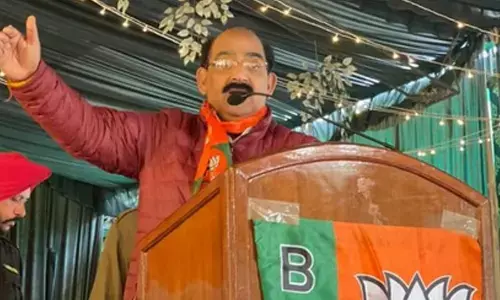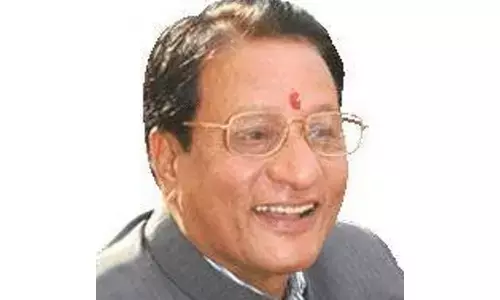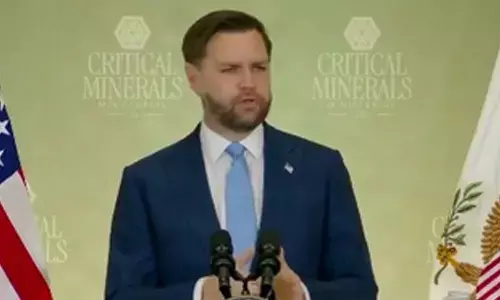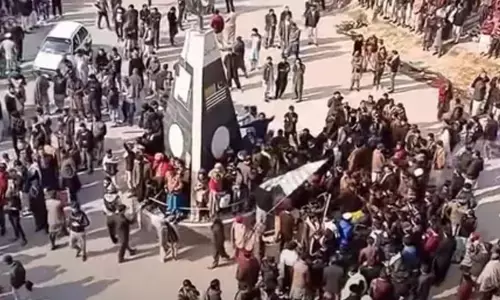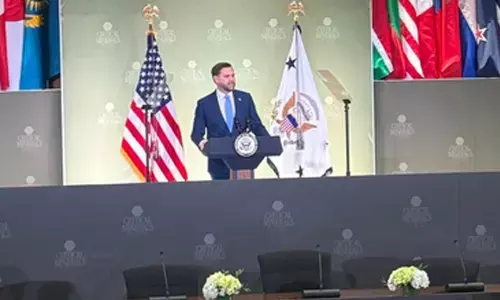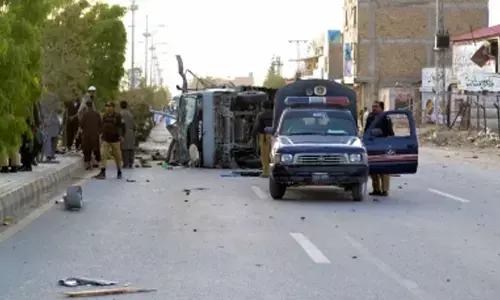Delhi Declaration for Secure, Stable Afghan
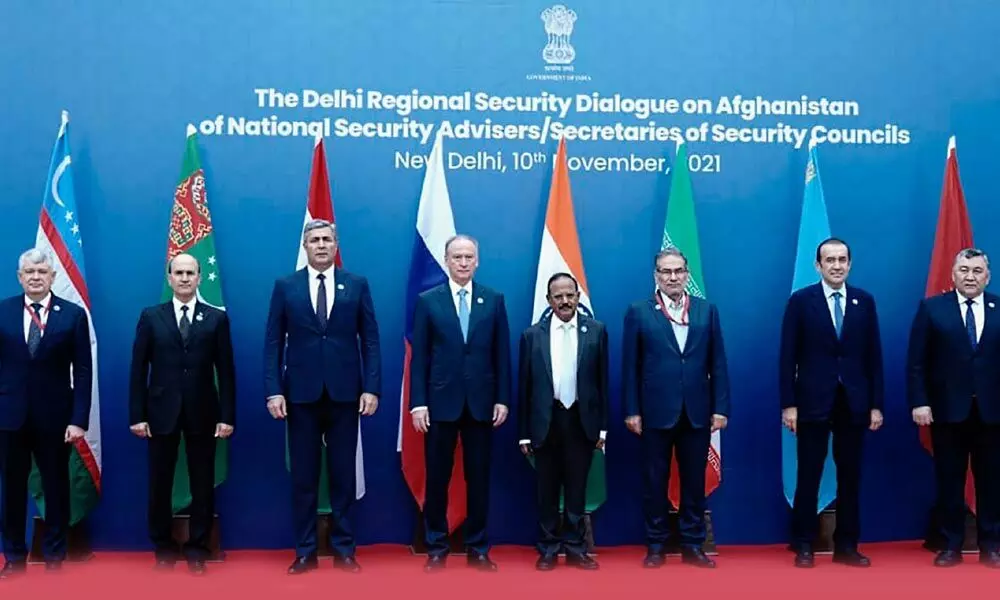
From left: Senior security officials of Uzbekistan, Turkmenistan, Tajikistan, Russia, India, Iran, Kazakhstan and Kyrgyz Republic at a security dialogue on Afghanistan hosted by India to discuss the situation following the fall of the US-backed government and the Taliban takeover of the country. India did not invite any Afghan representatives to the talks. The invitations were also sent to Pakistan and China but both declined to attend
Afghan territory must not be used for terrorism, decide 8 nations
New Delhi: India, Russia, Iran and five Central Asian countries on Wednesday vowed to work for ensuring that Afghanistan does not become a "safe haven for global terrorism" and called for the formation of an open and truly inclusive government in Kabul during a meeting of their top security officials here. At the end of the India-hosted security dialogue to review the unfolding situation in Afghanistan, a declaration was adopted by these eight nations, reaffirming that Afghan territory shouldn't be used for sheltering, training, planning or financing terrorist activities. Significantly, the declaration also emphasised the need for respecting the sovereignty, unity and territorial integrity of Afghanistan and non-interference in its internal affairs, seen as an indirect message to Pakistan.
The Delhi Regional Security Dialogue on Afghanistan expressed concern over the deteriorating socio-economic and humanitarian situation in that country and underlined the need to provide urgent humanitarian assistance to the Afghan people.
The security officials also said that humanitarian assistance should be provided in an unimpeded, direct and assured manner to Afghanistan and that the assistance is distributed within the country in a non-discriminatory manner across all sections of the Afghan society.
The Central Asian countries that attended the dialogue are Kazakhstan, Kyrgyzstan, Tajikistan, Turkmenistan and Uzbekistan.
In his opening remarks, National Security Advisor Ajit Doval, who also chaired the meeting, said the recent developments in that country have important implications not only for Afghan people but also for the region.
The declaration said the participants discussed the evolving situation in Afghanistan, especially the security situation and its regional and global ramifications. "The sides paid special attention to the current political situation in Afghanistan and threats arising from terrorism, radicalisation and drug trafficking as well as the need for humanitarian assistance," it said.
After the dialogue, the officials made a joint call on Prime Minister Narendra Modi and briefed him about the deliberations. The declaration said the officials reiterated strong support for a peaceful, secure and stable Afghanistan. It said they also expressed deep concern over the suffering of the Afghan people arising from the security situation there and condemned the terrorist attacks in Kunduz, Kandahar and Kabul.
They specifically emphasised that Afghan territory should not be used for sheltering, training, planning or financing any terrorist acts. The declaration said the officials condemned in the strongest terms all terrorist activities and reaffirmed their firm commitment to combat terrorism in all its forms including its financing.
It also referred to the need for dismantling terrorist infrastructure and countering radicalisation to
ensure that Afghanistan would never become a safe haven for global terrorism.
The officials also called for collective cooperation against the menace of radicalisation, extremism, separatism and drug trafficking in the region. They stressed the necessity of forming an open and truly inclusive government that represents the will of all the people of Afghanistan and has representation from all sections of their society, including major ethnopolitical forces in the country.
The declaration said the inclusion of all sections of the society in the administrative and political structure is imperative for the successful national reconciliation process in the country. Recalling the relevant UN resolutions on Afghanistan, the participants noted that the UN has a central role to play in that country and that its continued presence there must be preserved.
The officials also emphasised the importance of ensuring that the fundamental rights of women, children and minority communities are not violated. It is time for closer consultations, greater cooperation and coordination among the regional countries to deal with the challenges emanating from Afghanistan, Doval said.
"We all have been keenly watching the developments in that country. These have important implications not only for the people of Afghanistan but also for its neighbours and the region," he said. India invited China and Pakistan too but both the countries decided not to attend it.
According to the declaration, the officials reiterated their commitment to provide assistance to Afghanistan to prevent the spread of Covid-19 and agreed to remain engaged with each other in the future.








